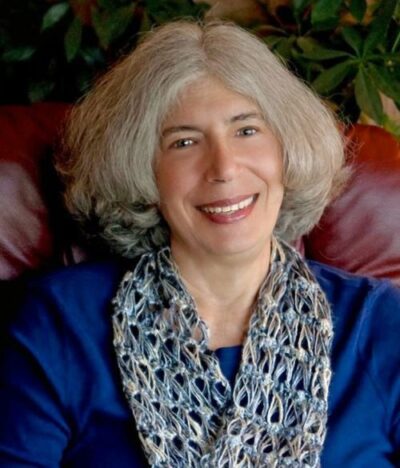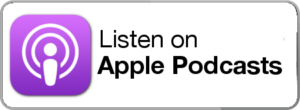Author Toni Bernhard was a law professor for 22 years at UC-Davis until she had to retire due to a viral infection which evolved into a chronic debilitating illness. In this episode Toni talks about her Buddhist practice, mindfulness and compassion and how they’ve helped her cope with chronic pain and breast cancer. And, of course, how she came to write three books — How to Be Sick: A Buddhist-Inspired Guide for the Chronically Ill and Their Caregivers, How to Wake Up: A Buddhist-Inspired Guide to Navigating Joy and Sorrow, and How to Live Well with Chronic Pain and Illness: A Mindful Guide.
Check out another podcast episode with Toni talks about gratitude as it relates to the Four Sublimes States of Buddhism.
Transcript
welcome to glass half full with leslie krongold she shares her stories experiences and knowledge of living and coping with a chronic health condition learn about tools and resources and hear inspirational interviews that help you to live a life filled with quality and dignity with two decades of support group leadership leslie’s ready to help you make lemonade out of life’s lemons are you ready
hello and welcome to this podcast if this is your first time listening and you enjoy this episode i hope you’ll check out the first 21 podcast episodes or the ones that interest you the best way to gauge what’s discussed in each podcast is by the title as well as the tag words that appear to the left of the podcast notes and you’ll only find the podcast notes and tags on the website glass half full dot online the tags for the previous episode were goals hope multiple sclerosis myotonic dystrophy and parkinson’s disease now those tags and the title don’t resonate with you you might still want to try listening to the episode i just wanted to give a plug to these other episodes i’m quite fond of them so let’s chat about this episode several years ago i found the book how to be sick i can’t remember how i found it if i’d read a review or was just intrigued by the title but i’m glad i found it although the author tony bernhard didn’t have a similar diagnosis as mine i still found so much of what she spoke or rather wrote about to relate to i’m recommending the book to people in my support group and even had it featured at one of the annual conferences for my community of adults with neuromuscular disease and then last year i started this podcast as you may realize i’ve interviewed a lot of people i’ve known people with chronic health conditions and people who work with a healing modality if i stick to people i know well my podcast days will be numbered so i knew i had to reach further so i started trying my best to contact authors and others who have inspired and taught me tony bernhard was one of the first people to respond quite openly to my inquiry not everyone i’ve tried to contact responds unfortunately before tony and i spoke though i wanted to make sure i’d read her most recent book how to live well with chronic pain and illness soon after i read the book we spoke via skype in december unfortunately when we spoke um i had a cold so i sounded a little froggy the good news is i’m feeling a lot better but my voice lives on and apparently there are no audio filters that can zap out a cold i hope you enjoy our conversation so my first question was really i wanted to ask you how you would characterize the three books that you’ve written how to be sick is the first book and it’s the first and the third books address chronic illness although i have to tell you that many people have read how to be sick who are perfectly healthy and have found it very helpful and i think the reason is the difference in the organization how to be sick is organized around practices and a kind of philosophy of life to help people with coping with chronic pain and chronic illness and so because the prac but the practices are helpful to anybody and so a lot of people love that book even though they don’t have health issues the third book which is also which is how to live well with chronic pain and chronic illness is organized differently it’s organized around the various problems that people encounter and how to best deal with them um and so there are chapters on isil isolation and loneliness there are chapters on how to deal with people who don’t understand who don’t believe that you’re disabled or sick or who don’t understand and aren’t supportive so and there’s a chapter on being young and being chronically ill so it’s it’s like 42 different challenges that people face so they’re similar in that they both discuss coping with chronic illness finding a measure of peace in your life but they’re just organized differently the middle book is actually i think of it as an introduction to buddhism book of all things i’ve been practicing buddhist for 25 years i don’t for me it’s a practical path not a religious one the buddha was a human being like like you and me and he came up with some very important or helpful insights into life and came up with a lot of practices and so uh how to wake up how to wake up a buddhist-inspired guide to navigating joy and sorrow really sets forth my understanding of his teachings and the reason i got the i i didn’t originally think of it as an introduction to buddhism but many buddhist teachers are using it that way so because it covers the basics now because i all of my books are written from personal experience and i always use stories from my life or stories people have told me to illustrate the points or the practices there’s a lot about chronic illness in how to wake up because i wrote it while i was ill so a lot of the examples in there um so in that sense all three books are about chronic pain and chronic illness how did your buddhist practice prepare you for living with a chronic illness and do you ever imagine how differently you would have handled everything if you didn’t have this 25 years of practice yeah well it’s interesting because at the time i got when i got sick i got a viral infection which turned into a chronic illness 15 years ago um i’d already been a practicing buddhist for 10 years that’s where i get my 25 years at first i i really turned away from all that i’d learned because i was so uh i was really traumatic to have my life turned upside down by this unexpected illness that forced me to retire early from from my job and made me pretty much housebound and some days bed bound buddha the buddhist teachings just i didn’t see the relevance and that’s how how to be sick came about because four to five years into the illness i began to use many of the buddha’s teachings to help me cope with what was happening and that is what eventually became how to be sick and uh you asked how his teachings have helped well i could talk for an hour ago just say a couple things one is that the buddha was very upfront about the human condition and that’s why sometimes people say oh that first noble truth is life is suffering what a pessimistic religion that is but all the buddha was doing was telling us the chapter and how to be sick that talks about this is called the buddha tells it like it is and what he does is to say you were born and this is actually all in the first noble truth this life is suffering is not the right translation he says you know you’re born and so you are subject to certain uh life events including uh illness and growing old and being separated from those you love either by distance or by death and so he was very oh and he also said getting not being a not getting what you want that’s where complaining comes in right or getting what you don’t want that certainly happened to me when i got sick and he said this is something that happens to everybody when i went back to his teachings that was the first thing that resonated so strongly for me was it’s as if somebody from 2500 years ago someone understood what i was going through and was saying well this is a part of being alive is that sometimes bodies get sick and actually i mean it happens to everybody just in different ways and this is how it’s happening to you there’s nothing wrong with you and that was the initial eye opener for me because i would have had been blaming myself for not recovering and this is a very common thing i’ve discovered with people who write to me about my books they’re they feel released by my writing from self-blame they’ve been directing it themselves over these circumstances that they don’t control and then happen to everybody and it’s what i had been doing the first years of my illness until that light bulb went on and i realized that this was just a normal part of life and this is how it happened to me and i needed to learn to live gracefully and purposefully with it or i was going to add another i was going to add a layer of mental suffering to the physical suffering that i experience every day so that was the initial insight well that brings up the question about the three components of physical discomfort could you just elaborate on that i found it very insightful look at pain with this sort of categorization or or segmenting i do find it i i find it helpful myself in dealing with pain i there’s two different ways i segment it and the first is what you’re referring to these three components of physical discomfort and what is interesting is that two of the three are mental the discomforts in the body so of course the first is the unpleasant sensation in the body itself whether it’s pain or aching or fatigue and the second is our emotional reaction for that physical discomfort which is often frustration anger it could be fear irritation self blame that kind of thing and the third so there’s that initial emotional reaction and that that’s kind of the buddha’s uh getting what you don’t want and so you react against it and the third are the stories that we start to spin that are related to the physical discomfort and this emotional reaction and so if i have a day where i’m experiencing a lot of pain the stories that it’s one thing to just be able to say i’m experiencing pain it’s unpleasant what can i do to make this day as manageable as possible but instead what we tend to do is start spinning stories and that’s where the real mental suffering resides like this pain will never go away i’ll never have another pain-free day i’ll never be able to do anything useful in life because i’m always in pain those stories that we spend and actually there’s buddhist teachers and often say the suffering is in the stories and i certainly find that to be true in my life so those are the three components of physical pain and sometimes uh i don’t put this in the book because i i’m really not writing uh this this last book is a buddhist book it’s just that i’m so influenced by buddhism of course but in buddhism that’s known as the second arrow the first arrow is you’re experiencing physical discomfort or particularly pain is what we’re talking about here that’s the first arrow the second arrow is that is the mental overlay the second and third components that reactive mind that reacts in anger or frustration instead of being able to say oh yes pain is present pain is present and not react to it because it’s those reactions that set off the stories so number two and three are we often called the second arrow the unnecessary arrow now having said that i don’t put me on a pedestal i i’m uh you know i have to work with this every day
it’s not that easy uh simply be mindful of physical sensation and not start spinning the stories but with practice you get better at it and you’re able to say well this is what’s going on right now let me not make more let me not start predicting a future which may not eat which is unlikely to come you know most of our predictions about the future don’t spin out the way we’ve predicted them it takes practice it’s really a mindfulness practice in the sense of becoming aware you know when people talk about mindfulness there’s usually an emphasis on what’s outside of ourself be mindful of the of the trees and the sound of the birds and i’m kind of changing subjects here but for me the the true value of mindfulness is to become aware of what’s going on in my mind that’s where the mental suffering is that’s where that the the uh that’s where i make things worse for myself it’s interesting for me to see the language for this because i’ve always felt that i what i try to do when i have pain i know it’s exacerbated by the anxiety that i experience about it and that anxiety could be you know i could use the words you use about separating it into you know the emotional reaction and then the the fear and everything that i’m predicting this is my future a new baseline etc and when oh i know that one right the baseline yeah yeah so it’s it’s it’s trying to really become for me my experience is just become trying to really identify okay this is the anxiety if i can control the anxiety i will still have the pain but it won’t be exacerbated because that’s where it becomes kind of unbearable for me yeah and you know that and that’s exactly what i’m talking about doing leslie and it’s another reason it’s helpful is that um that that kind of emotional reaction can actually exhaust exacerbate the physical symptoms because we tighten muscles sometimes we tighten muscles around the point of pain and so then we’ve got secondary pain from that or so you know emotions are felt in the body so it’s not i’m not the the separation body mind is artificial to some extent it’s certainly helpful to talk to be able to distinguish them in that way but it’s also true that when we learn to recognize how we’re react or how our emotional reactions are making things worse for us that also helps us relax our bodies and so that can help with pain too the afterwards certainly caught me by surprise and it was you know of course sorry to to read about your diagnosis and i wondered if this experience going through i guess different treatment and such and having an acute illness has given you a different perspective and will you be writing a book about it well here’s what i’m doing i’m not right yeah you mentioned the afterward i should explain that it was two years ago actually almost exactly that i was diagnosed i had a lump removed from my breast and and went underwent treatment and um the prognosis is good but i had just finished polishing the manuscript with my editor uh for the book that you just read when i got this diagnosis and i actually called her up and said well we can’t publish this book it doesn’t it’s not truthful anymore because now i have breast cancer to throw it out and start over and she’s we talked about different options and what we decided was to just include an afterward that talks about it’s just three pages that explains what happens and says a few other things about it so a few months ago my publisher asked if i would do a new edition of my first book how to be sick which has was published six years ago i jumped at the opportunity because what i’m doing is revising and expanding it in several ways one is to include mental illness because i’ve had a lot of people write to me about how my books have helped with that even though i didn’t set out to address that and another thing is that i’m able to add some practices and some other ideas and in that i do talk about when i give examples or explain how these things have worked for me i talk about the breast cancer and the worries and the fears and the dealing with side effects of medication and all that kind of thing so i am writing about it and it will show up in that book in two years because the publication date is fall 2018. that it takes a while from the inception to actually get all to do all the things involved in getting a book published which i knew nothing about before i entered into that stream and i have written i wrote one piece about it for psychology today i will be writing about it actually breast cancer is best thought of as a chronic illness because it’s i didn’t realize this but it’s ongoing in the sense that after you initial treatment then there are medications to try to prevent recurrence and those medications have side effects that can lead person to have to weigh quality of life against how much they do a statistical analysis for you that tells you if you take this pill it will reduce the risk of recurrence a certain percentage and there are women who decide to go off the pills because uh they have diminished their quality of life to the extent that they’d rather take the risk and that’s an individual decision hopefully you have an oncologist who is supportive of discussing that with you and weighing the pros and cons some of them just want you to take the meds
but hopefully you have someone who understands how difficult it can be so it’s it’s been two years i’m still a breast cancer patient i just saw my doctor uh last week actually so the only thing that i would that i wish we had time to talk about are some of the practices that are that can that come under a heading of that are called the sublime states in buddhism wishing others well compassion feeling joy for others when they’re happy and equanimity those are the four sublime states and i spend every one of my books emphasizes them because when i started my little buddhist wrap by saying the buddha tells it like it is and some people find that depressing well the good news is that we can overcome so much of our fears and frustrations through these positive practices cultivating friendliness towards others and toward ourselves compassion which means reaching out to others and to yourself when you’re suffering being being kind to yourself people write to me about my books who people who are chronically ill the most common thing they say if i were to keep track i just know from reading the emails is that until they read my books it never occurred to them to treat themselves with compassion to be kind to themselves they thought they didn’t deserve it well if you don’t deserve i mean if you’re not going to be kind to yourself who is i there’s in my view there’s never a good reason not to treat yourself kindly it doesn’t mean you can’t learn from mistakes but to allow yourself to live in a state of self-judgment self-blame it just makes a difficult life worse and so it’s really important to cultivate compassion and kindness an equanimity which refers to equanimity as a sta a balanced state of mind in which you accept that life will be a mixture of joys and sorrows and successes and disappointments and being able to accept that with grace whether it’s the results of an election how you feel this particular day to be able to say oh i really feel awful today well okay that’s how i feel today sometimes some days people feel awful and to be able to accept that without bitterness and also just with some historical perspective that life has always been this way for everybody a mixture of joys and sorrows so that’s kind of a short version of equanimity so that that’s the only thing we didn’t talk about or some of these positive mind states that that are helpful to cultivate and i write about them in all of my books well actually it’s funny i did have a question about the the three i don’t know attitudes that you cultivate and and equanimity was the one that was uh most interesting because well one it’s not a word that i mean i’ve heard the word but i wasn’t i’ve never used it so it was um it was very interesting to read about and i was going to ask you that so i’m glad you brought it up good good yeah well that’s just the translation of a pali term pali being the language the buddha spoke the term is upeka and it’s been translated into english as equanimity which is given what how it is described it’s a good translation if you look equanimity up in the dictionary you’ll find it says you know basically a balanced state of mind being able to ride lives life’s ups and downs without being tossed about and it’s also something that is a something you have to work on every day i mean if i were if i were equanimous 100 of the time oh i’d consider myself enlightened that would be good enough for me well we could just keep trying yes yes try or there’s a zen teacher who has the expression keep a try mind i love that and i just love that well thank you so much tony it’s been a pleasure to to speak with you and i really appreciate the two books i’ve read and i will read your other one good good yeah i think you’ll enjoy the other one it’s an easy read because that i don’t know turns out that’s the way i write a very conversational style so i i’m glad you’re you’ll have a look at it
thank you for listening to glass half full leslie invites you to leave a rating and review on itunes this helps spread the word to others dealing with chronic health issues for show notes updates and more visit the website glass half full dot dot online.online






3 comments on “Author Toni Bernhard talks about her books, Buddha, pain, mindfulness, breast cancer, and compassion”